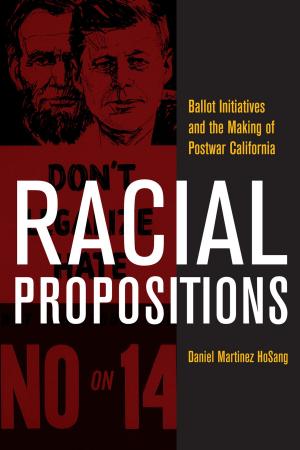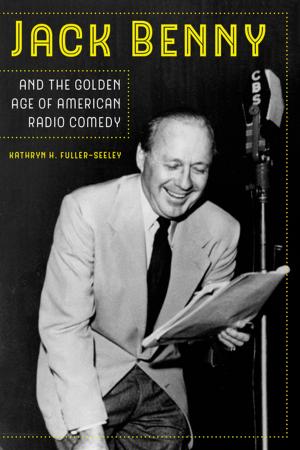The Nicest Kids in Town
American Bandstand, Rock 'n' Roll, and the Struggle for Civil Rights in 1950s Philadelphia
Nonfiction, Social & Cultural Studies, Social Science, Discrimination & Race Relations, History, Americas, United States| Author: | Matthew F. Delmont | ISBN: | 9780520951600 |
| Publisher: | University of California Press | Publication: | February 22, 2012 |
| Imprint: | University of California Press | Language: | English |
| Author: | Matthew F. Delmont |
| ISBN: | 9780520951600 |
| Publisher: | University of California Press |
| Publication: | February 22, 2012 |
| Imprint: | University of California Press |
| Language: | English |
American Bandstand, one of the most popular television shows ever, broadcast from Philadelphia in the late fifties, a time when that city had become a battleground for civil rights. Counter to host Dick Clark’s claims that he integrated American Bandstand, this book reveals how the first national television program directed at teens discriminated against black youth during its early years and how black teens and civil rights advocates protested this discrimination. Matthew F. Delmont brings together major themes in American history—civil rights, rock and roll, television, and the emergence of a youth culture—as he tells how white families around American Bandstand’s studio mobilized to maintain all-white neighborhoods and how local school officials reinforced segregation long after Brown vs. Board of Education. The Nicest Kids in Town powerfully illustrates how national issues and history have their roots in local situations, and how nostalgic representations of the past, like the musical film Hairspray, based on the American Bandstand era, can work as impediments to progress in the present.
American Bandstand, one of the most popular television shows ever, broadcast from Philadelphia in the late fifties, a time when that city had become a battleground for civil rights. Counter to host Dick Clark’s claims that he integrated American Bandstand, this book reveals how the first national television program directed at teens discriminated against black youth during its early years and how black teens and civil rights advocates protested this discrimination. Matthew F. Delmont brings together major themes in American history—civil rights, rock and roll, television, and the emergence of a youth culture—as he tells how white families around American Bandstand’s studio mobilized to maintain all-white neighborhoods and how local school officials reinforced segregation long after Brown vs. Board of Education. The Nicest Kids in Town powerfully illustrates how national issues and history have their roots in local situations, and how nostalgic representations of the past, like the musical film Hairspray, based on the American Bandstand era, can work as impediments to progress in the present.















